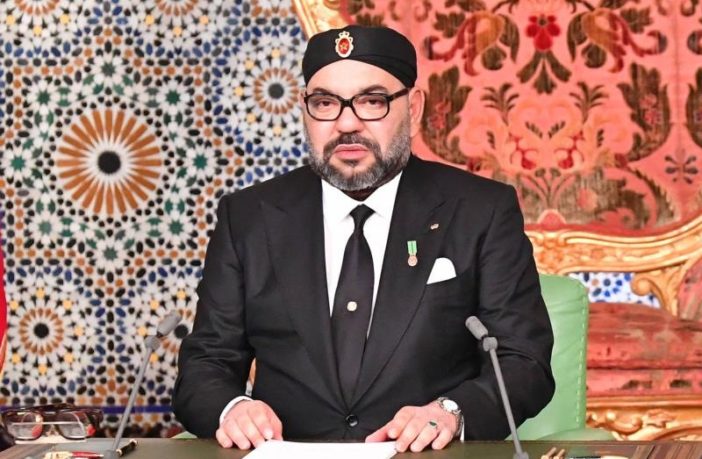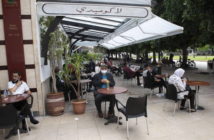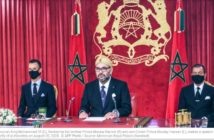Delivering his speech on the eve of the 21st anniversary of his accession to the throne, Morocco’s King Mohammed VI predictably focused on the Covid-19 pandemic and the challenges arising from the same. Morocco in north Africa has done relatively well in tackling the pandemic, hitherto registering 22,213 Covid cases with 334 deaths for its population of 33 million people. This has been possible due to the direction of King Mohammed who shepherded the elected parliament and all organs of the Moroccan state to undertake necessary social, economic and health measures, based on the spirit of solidarity and national unity, to mitigate the spread and effects of the pandemic on Moroccan society.
True, Morocco is still not out of the woods as far as Covid is concerned. In fact, no country is. Even Vietnam that saw a period of 100 days with no local Covid transmission has witnessed fresh cases this week. This shows that the nature of the virus is such that it can come back in waves. Therefore, what really matters is how countries learn from this crisis, strengthen themselves and prepare for the future. This is where King Mohammed is once again imparting his sagacious directions to prepare Morocco for the post-Covid world.
On the occasion of last year’s throne day, I had mentioned how King Mohammed can be justifiably described as Morocco’s reformer and institution-builder. True to that title, King Mohammed this time in his Throne Day speech has called for a comprehensive social protection scheme to cover all Moroccans over the next five years. Elaborating on this, King Mohammed emphasised that the process will start gradually, beginning with compulsory health coverage and family allowances, and then moving on to pension and unemployment benefits. The overall aim here is to integrate the Moroccan informal sector with that nation’s economic fabric. For, it is the vast majority in the informal sector, in almost all countries, that has been most affected by Covid. They have been the first to lose their jobs, have faced the threat of losing their homes, and have had to confront the painfully difficult choice of either risking infection and eking out a living or staying indoors and starving.
Therefore, King Mohammed’s pitch for 100% social welfare coverage is indeed laudable and certainly a lesson well-learnt from the Covid pandemic. In fact, post-Covid countries can no longer treat pandemics and unforeseen natural calamities as rare occurrences that won’t touch us in our lifetimes. On the contrary, we should prepare for the unforeseen so that we are not caught unawares again. And providing a social welfare safety net for all people has to be normal policy going ahead.
But there is also another reason why a comprehensive social protection scheme is important. Pandemics do devastate societies and economics. But they do not devastate all people equally. In fact, various studies have shown that pandemics tend to make the rich even wealthier. In a macabre way, pandemics witness a concentration of wealth in a few people as the rich have the resources to protect themselves from disease and quickly adapt to new circumstances through enterprise and technology. This is precisely what happened during the Black Death in 14th century Europe. And it is happening again today with American billionaires becoming richer to the tune of $565 billion since March 18, according to a report published by the Washington DC-based think tank Institute for Policy Studies and Clearwater, Florida-based advocacy group Americans For Fair Taxation. In fact, the total wealth for billionaires stood at $3.5 trillion, up 19% from the low point near the beginning of the pandemic. Most of these billionaires have technology-driven businesses that are actually benefitting from the changed circumstances in the wake of the pandemic, and are boosting their wealth through strategic investments in each other’s businesses.
This has already rung alarm bells that global inequality is set to increase in the post-Covid era. And that in turn would unleash huge negative forces in society, including radicalism. King Mohammed knows all too well the devastation that such forces can unleash and has guided Morocco on the path of South-South economic cooperation with sister African nations over the last decade to mitigate deprivation, enhance social stability, and root out the inequality that allows radicalism to breed. It is with this wisdom he is once again using the pitch of a comprehensive social protection system to attack inequality to protect Moroccan society and inoculate it from the long-term effects of Covid.
Thus, at a time when the rich are getting richer, King Mohammed is trying to ensure that the poorest Moroccan is included in a social safety net. This certainly shows sagacious leadership with empathy and human solidarity. And is surely worthy of emulation by other countries.







